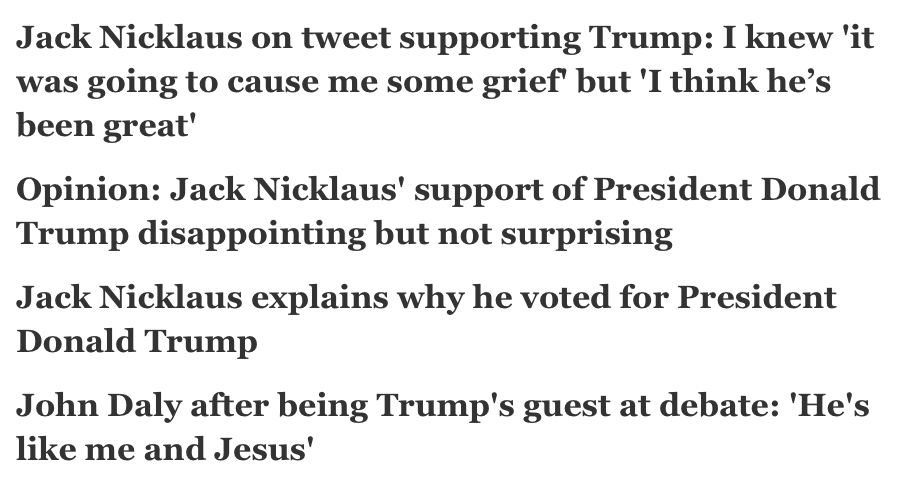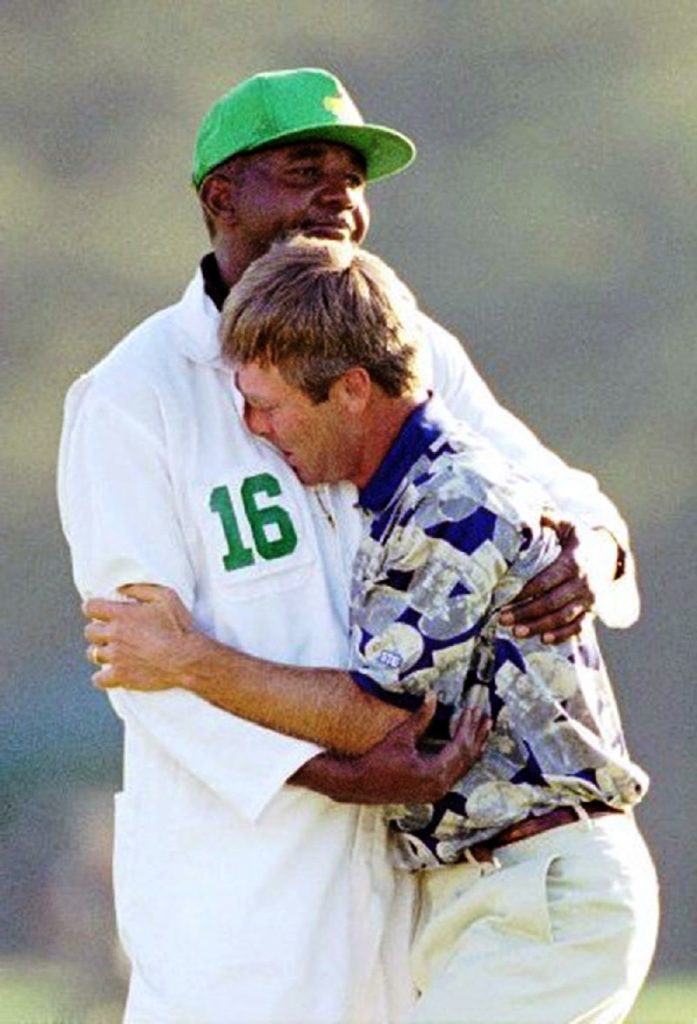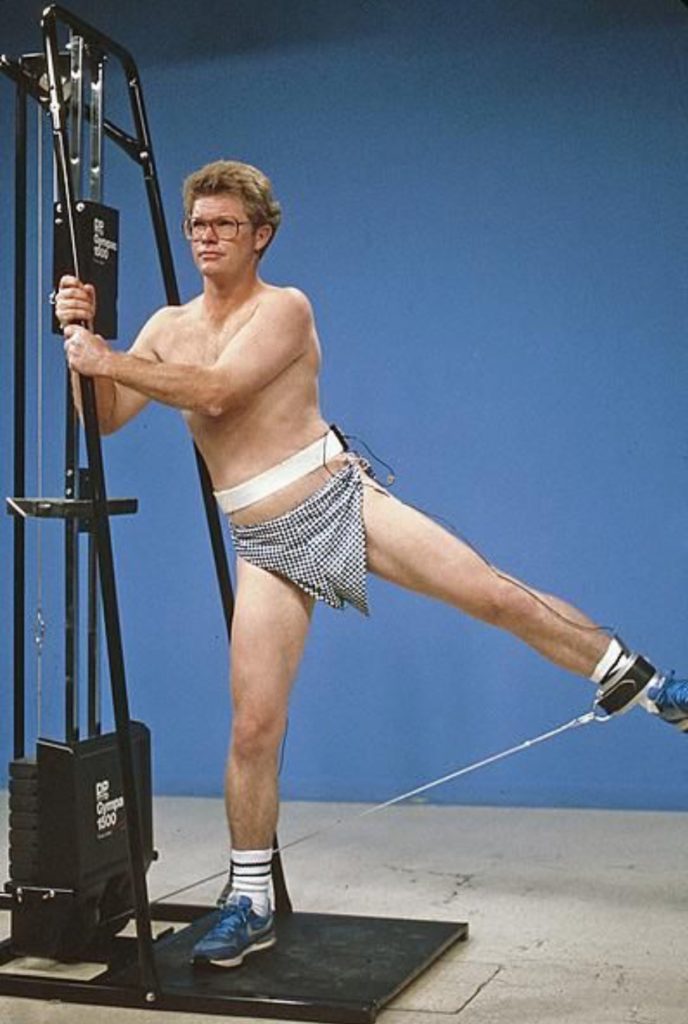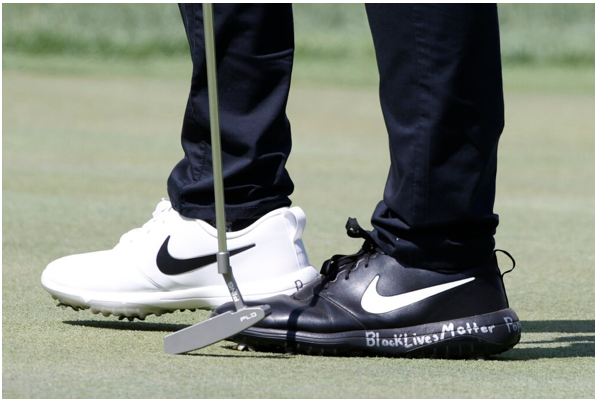On a Zoom call over the weekend, more than 100 CEOs and other politically overwhelmed corporate leaders debated whether to shit or wind their wrist watches.
In one of the many dubious things surely said on that call, Atlanta Falcons owner Arthur Blank said he thinks sports fans want to know the politics of sports leagues, including the Professional Golfers Association.
Which took me back to 2008, when I pitched a story to a national golf magazine, proposing that we survey PGA players, in the run-up to that year’s momentous presidential election, on their politics.
I thought it would be interesting—especially in the context of a sport where there’s so little going on that fans spend a lot of their total viewing time musing about who does and who doesn’t seem like “a good guy.”
“You don’t want to know,” the editor told me over the phone. “They’re all right-wing monsters.”
All?
I understood the editor’s reticence to publish a survey that said the vast majority of PGA players were Republicans. What good would it do for anyone to know that?

But I started keeping a mental list, as I misspent my Sundays watching golf, of Possible Non-Monsters in Professional Golf. I focused on the Europeans, the younger players, and the amicable old. Ben Crenshaw was on my list for awhile because he had a special relationship with his caddy Carl Jackson and because his nickname is “Gentle Ben”; but I later learned that he was an ecstatic Trumper from the jump, and relearned that I’m a sentimental moron.

Tom Watson was on the list, until he wasn’t. Jim Furyk is still on my list, because he’s a Pittsburgh guy, and because I can’t bear to Google it and realize I’m wrong. And Tom Kite will always be on the list, because he is strong, yet not afraid to appear vulnerable.

All of which is a pretty dumb way to spend one’s mental energy—even on a Sunday afternoon already committed to gaping at the Masters. But then, I spent a lot of dumb energy, especially early in Tiger Woods’ career, defending him fiercely and as if it was my job, against haters who I assumed were either racists or pathological mediocrities or both. (Looking back on it, most of them were pathological mediocrities.)
I’d almost separated my golf fandom from politics, when the biracial young pro golfer Cameron Champ showed up at a tournament last summer in these. In the context of professional golf, I thought that took guts. Just when I thought I was out, they pull me back in!

Last week at the Masters, young Champ expressed his disgust for the Georgia voting law, adding that he intends to keep talking about the issue of race in America, and to get better so his megaphone gets bigger: “There’s not many people [on tour] who are willing to talk about it. It kind of gives me a little chip on my shoulder just to get to where I know I can get because then, once I get there, then I know I can do a lot more things.”
Even Northern Ireland-born golf star Rory McIlroy, who once teed it up with Trump, weighed in on the Georgia voting rights law, albeit on eggshells:
“I have to be respectful and somewhat careful what I say because I’m not a citizen of this country, but I certainly think all great countries and democracies are built on equal voting rights and everyone being able to get to the ballot boxes as easily as possible. I’ve chosen to live in this country because I believe this country is the best country in the world. America is the land of opportunity, and it’s the American dream. You work hard; you get rewarded. So I believe in all of that stuff.”
The list of Possible Non-Monsters in Professional Golf might be small, but it’s growing. Which sounds pretty good to me—maybe not to make the world a better place, but to make golf interesting again, long after Tiger Woods stopped being a cause worth defending. Trotskyite wins U.S. Open! Troglodyte Chokes at Royal Troon! In the PGA Championship, the P Stands for “Progressive”! Huzzah!
It might be a short-term thrill, I have to warn you: I used to try to interest my wife in watching women’s tennis matches with me by playing up (or making up) fierce feminist backstories about one of the players, while implying that her opponent was unsympathetic. It worked a few times. Until my wife realized that most of the athletes—even the women athletes, whose very sport is a political cause in itself—think 98 percent of the time about their sport, and about two percent about anything else, and so it’s not usually very enlightening to hear them talk about anything else.
CEOs, you’ll find, are sort of the same way. That’s why they hire English majors to help them talk good.
And listening to male golfers talk politics? That’s about as worthwhile as watching a sports columnist play golf. At a business dinner party in the mid-1970s, my ad-man dad sat my novelist mother next to the pro golfer Ken Venturi. It led to one of the worst fights in their whole marriage, and it was the very last such “plastic” to-do she ever attended—and quite possibly, the beginning of the end of their marriage.
There have been eloquent athletes in history and there have been politically heroic ones.
But if we’re going to start grilling ordinary ones on the issues of the day, we’ll find that corporate CEOs are scintillating by comparison.
Leave a Reply